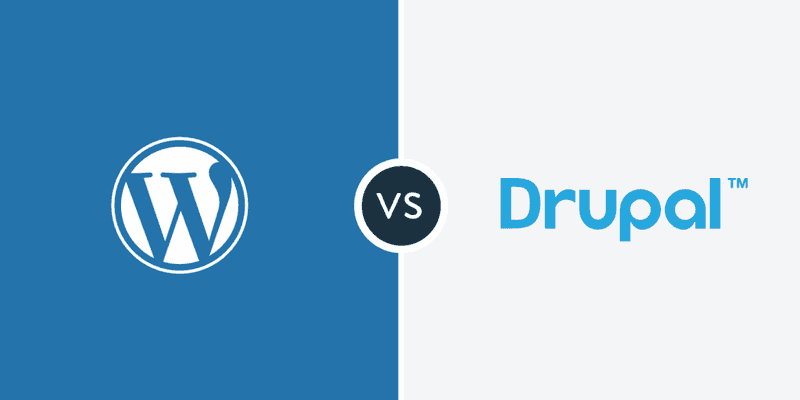Drupal vs. WordPress: Weighing the Pros and Cons
Jun 19th 2023
When it comes to content management systems (CMS), Drupal and WordPress are two of the most popular options available. Each platform has its own strengths and weaknesses, making it important for individuals and organizations to carefully consider their specific needs before deciding which one to use. In this article, we will explore the pros and cons of Drupal and WordPress, providing a comprehensive overview to help you make an informed choice.

Pros of Drupal:
- Robust and Scalable: Drupal is known for its scalability and ability to handle large and complex websites. It provides a solid foundation for building enterprise-level sites with extensive functionalities, making it a preferred choice for businesses and organizations with complex requirements.
- Flexible Content Modeling: Drupal offers a highly flexible content modeling system, allowing users to create and manage complex content structures with ease. Its Entity-Field-Value (EFV) architecture enables you to define custom content types, fields, and relationships, providing granular control over your website's data structure.
- Advanced User Permissions and Security: Drupal has a robust access control system, granting administrators fine-grained control over user permissions. It offers extensive security features, including regular security updates, a dedicated security team, and a strong community focus on ensuring a secure platform.
- Multilingual Support: Drupal provides excellent multilingual support out of the box, allowing you to create websites in multiple languages. It offers translation management tools, language detection, and configuration options to deliver localized content effectively.
Cons of Drupal:
- Steeper Learning Curve: Drupal's power and flexibility come at the cost of a steeper learning curve compared to other CMS platforms. It requires some technical proficiency and familiarity with concepts such as taxonomy, views, and modules, making it less beginner-friendly.
- Limited Themes and Plugins: While Drupal offers a wide range of modules to extend its functionality, it has a smaller selection of themes and plugins compared to WordPress. Finding a visually appealing theme or a specific plugin might require more effort or customization.
Pros of WordPress:
- User-Friendly Interface: WordPress is renowned for its intuitive user interface, making it accessible to beginners and non-technical users. Its simple and user-friendly dashboard allows users to create and manage content with ease, without requiring extensive technical knowledge.
- Vast Theme and Plugin Ecosystem: WordPress boasts a massive library of themes and plugins, providing endless possibilities for customization. Users can easily find and install themes to change the look and feel of their website, and plugins to add new features and functionality.
- Strong Community and Support: WordPress has a vast and active community, comprising developers, designers, and users. This community-driven support system ensures that users can find help, tutorials, and documentation readily available, making it easier to troubleshoot issues or seek guidance.
- SEO and Blogging Capabilities: WordPress was initially built as a blogging platform and has retained its excellent blogging features. It offers robust SEO capabilities, making it easier for websites to rank well in search engines and attract organic traffic.
Cons of WordPress:
- Security Vulnerabilities: Due to its popularity and vast plugin ecosystem, WordPress can be a target for hackers. Poorly coded themes or plugins, or outdated installations, can pose security risks if not properly maintained. Regular updates and security measures are crucial to keep your WordPress site secure.
- Scalability Limitations: While WordPress is suitable for small to medium-sized websites, it may face scalability challenges with highly complex or extensive websites. As the site grows in size and traffic, optimization and additional resources may be required to maintain performance.
Conclusion:
Choosing between Drupal and WordPress ultimately depends on your specific needs and requirements. Drupal excels in handling large, complex websites with intricate content modeling, advanced user permissions, and excellent mult
bilingual support. On the other hand, WordPress offers a user-friendly interface, an extensive theme and plugin ecosystem, and strong community support, making it ideal for smaller to medium-sized websites or blogs. Assessing the pros and cons outlined in this article should assist you in making an informed decision based on your unique circumstances.